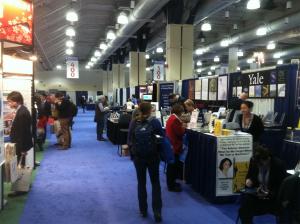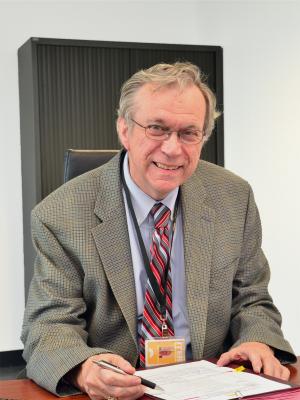AAAS: the beauty of science
The American Association for the Advancement of Science (AAAS), the world's largest scientific society and one of the oldest (founded 1848), held its annual meeting on 14-18 February in Boston.
The meeting, which a US newspaper described as "the largest aggregation of pointed heads anywhere," is quite unique in its breadth and scope. The topics range from biology to cosmology and from elementary particle physics to science communication, covering the whole range of science research and knowledge. This year the meeting also addressed science policy issues, with panel discussions on the "Role of Science in the American Democracy: Roots, Tensions, and Paths Forward" and "European Science Policy Issues on the Move."
"The clear goal of the various symposiums and panel discussions is to illustrate to scientists who are working in other fields, as well as to members of the press, the progress and the beautiful work that has been done. Some of these talks were just wonderful," says ITER Deputy Director-General Rich Hawryluk who participated in the symposium on "Worldwide Progress Toward Fusion Energy" and gave a talk on "ITER: A Magnetically Confined Burning Plasma," completing his presentation with examples of fusion power production and alpha-particle physics studies at JET and TFTR, and stressing how ITER will dramatically extend these results.
ITER was also prominently featured in "Advances in Burning Plasma-Related Physics and Technology in Magnetic Fusion" by MIT's Amanda Hubbard. A Fellow of the American Physical Society presently working on the Alcator C-Mod tokamak, Hubbard stated that ITER is a priority for the international fusion program, which has focused attention on the critical issues for fusion-scale plasmas. She described progress in simulations of core turbulence and transport, validated by detailed measurements, predictions of the edge transport barrier, and the development of means to control or avoid large edge instabilities.
The final two talks in the symposium were focused on steps beyond ITER. Hutch Neilson from PPPL gave a talk entitled "Issues and Paths to Magnetic Confinement Fusion Energy," stressing that a new phase of magnetic fusion R&D has now begun. While the success of ITER is the first imperative, nations are already planning roadmaps to DEMO, moving ahead on DEMO R&D, and planning integrated fusion nuclear facilities. There are multiple approaches to fusion development but broad agreement exists on the goals, critical tasks, and the value of international collaboration.
The symposium also addressed the progress accomplished in inertial fusion, with presentations on the National Ignition Facility and the path to laser inertial fusion energy, and on alternate approaches for laser inertial confinement fusion. Mike Dunne, from LLNL updated the audience on the design study of the next-step inertial fusion device LIFE.
Although the AAAS meeting addresses a science-educated public, "most, if not all speakers in other areas of science that I am less familiar with made efforts to be accessible, and they did a very good job," says Rich. "I learned a great deal from the other talks about the importance and impact of clearly communicating the importance and beauty of the work."



